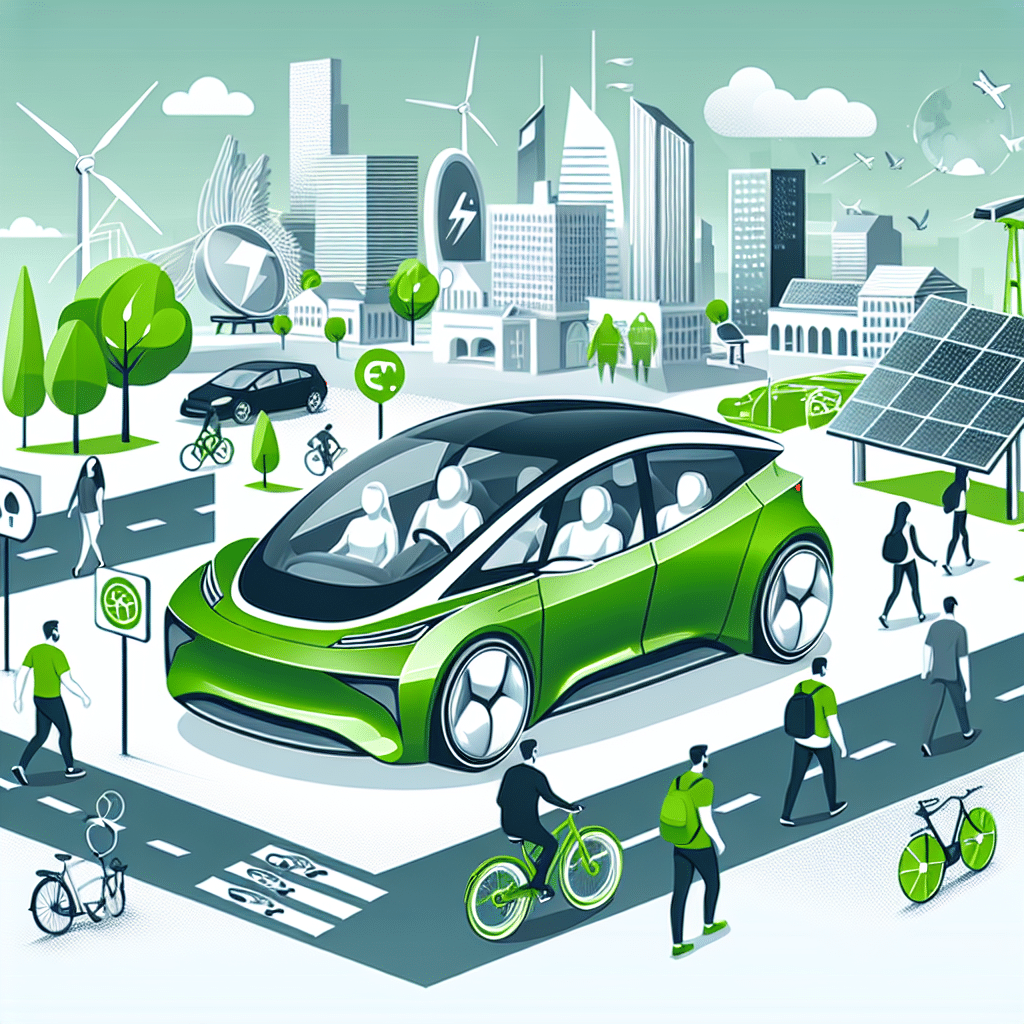Eco-Friendly Electric Vehicles (EVs) for Daily Commuting
The Rise of Eco-Friendly Electric Vehicles
As urban areas grow and the focus on sustainability intensifies, eco-friendly electric vehicles (EVs) have become a popular solution for daily commuting. With advancements in technology, these vehicles not only reduce carbon footprints but also promise significant savings in fuel and maintenance costs.
Advantages of Electric Vehicles
-
Environmental Impact: The primary appeal of EVs lies in their ability to reduce greenhouse gas emissions. By using electric motors powered by rechargeable batteries, they emit zero tailpipe emissions. This is especially beneficial in urban settings where air quality is a pressing concern.
-
Cost Savings: Electric vehicles generally offer lower running costs compared to their gasoline or diesel counterparts. While the initial purchase price may be higher, the cost per mile to operate an EV is significantly less due to lower fuel and maintenance costs.
-
Tax Incentives and Rebates: Many governments worldwide offer incentives to encourage EV adoption, including tax credits, rebates, and grants for EV supplies and charging stations. These financial benefits can greatly reduce the effective cost of purchasing an electrified vehicle.
-
Quieter Driving Experience: The electric motors in EVs operate much quieter than traditional combustion engines. This not only enhances the driving experience but also contributes to lower noise pollution, making neighborhoods more livable.
-
Technological Innovations: The EV market is continuously evolving, leading to innovations such as regenerative braking, advanced battery technologies, and user-friendly infotainment systems that make driving more enjoyable and efficient.
Popular Eco-Friendly EV Models for Commuting
-
Tesla Model 3: Known for its impressive range of up to 358 miles on a single charge, the Tesla Model 3 is a top choice for commuters. The combination of cutting-edge technology, spacious interior, and strong performance makes it appealing for both individual and family needs.
-
Nissan Leaf: One of the earliest mainstream electric cars, the Nissan Leaf provides an affordable option with solid range capabilities. With the latest model offering approximately 226 miles and a comfortable interior, it’s perfect for city driving.
-
Chevrolet Bolt EV: The Bolt EV stands out for its affordability and range, approximately 259 miles, at a competitive price point. It features practicality and gets high marks for its roomy interior, making it a favorite among urban commuters.
-
Hyundai Kona Electric: With a range that also extends to around 258 miles, the Kona Electric provides the benefits of a compact SUV along with eco-friendliness. It has all-wheel-drive options, adding to its versatility for commuter needs.
-
BMW i3: The BMW i3 exemplifies premium eco-friendly commuting. While the range may be shorter at about 153 miles, the unique design and luxurious features appeal to urban professionals seeking sustainability without sacrificing style.
Charging Infrastructure and Home Solutions
-
Public Charging Stations: As the number of EVs on the road increases, so does the network of public charging stations. Many cities are investing in this infrastructure, with fast-charging options that can replenish a vehicle’s battery in less than an hour.
-
At-Home Charging: Installing a Level 2 home charger can significantly enhance the convenience of owning an EV. Home charging allows users to plug in overnight, ensuring they start their day with a full battery without the need for a trip to the gas station.
-
Workplace Charging: Many employers are starting to recognize the importance of EV charging facilities at workplaces. Providing charging stations not only aids in employee satisfaction but also aligns with corporate sustainability goals.
Overcoming Range Anxiety
Range anxiety— the fear of running out of battery power before reaching a destination—can deter potential EV buyers. However, advancements in battery technology coupled with growing charging infrastructure are alleviating these concerns. Drivers should consider their daily commuting patterns and select vehicles that comfortably accommodate those ranges.
The Future of Electric Vehicles
The future looks promising for eco-friendly EVs. Car manufacturers are heavily investing in R&D to improve battery efficiency, reduce charging times, and expand range capabilities. The introduction of solid-state batteries aims to further enhance performance and safety attributes.
Sustainability Beyond the Vehicle
Owning an EV also promotes broader sustainable practices. Many EV owners are more inclined to invest in renewable energy sources, such as solar panels for their homes, creating a holistic approach to reducing environmental impact. This synergy between EVs and renewable energy not only maximizes personal eco-friendliness but also supports larger climate initiatives.
The Role of Smart Technology
As we move into a more connected world, smart technologies are enhancing the EV experience. Features such as smartphone apps allow drivers to monitor battery levels, find nearby charging stations, set charging schedules, and even precondition the vehicle to optimize temperature before driving.
Conclusion
With numerous benefits—environmental sustainability, cost savings, advanced technology, and improved urban livability—eco-friendly EVs are an excellent choice for daily commuting. Beyond just transport, they symbolize a commitment to a cleaner, greener future, making them an essential component of modern urban life.
